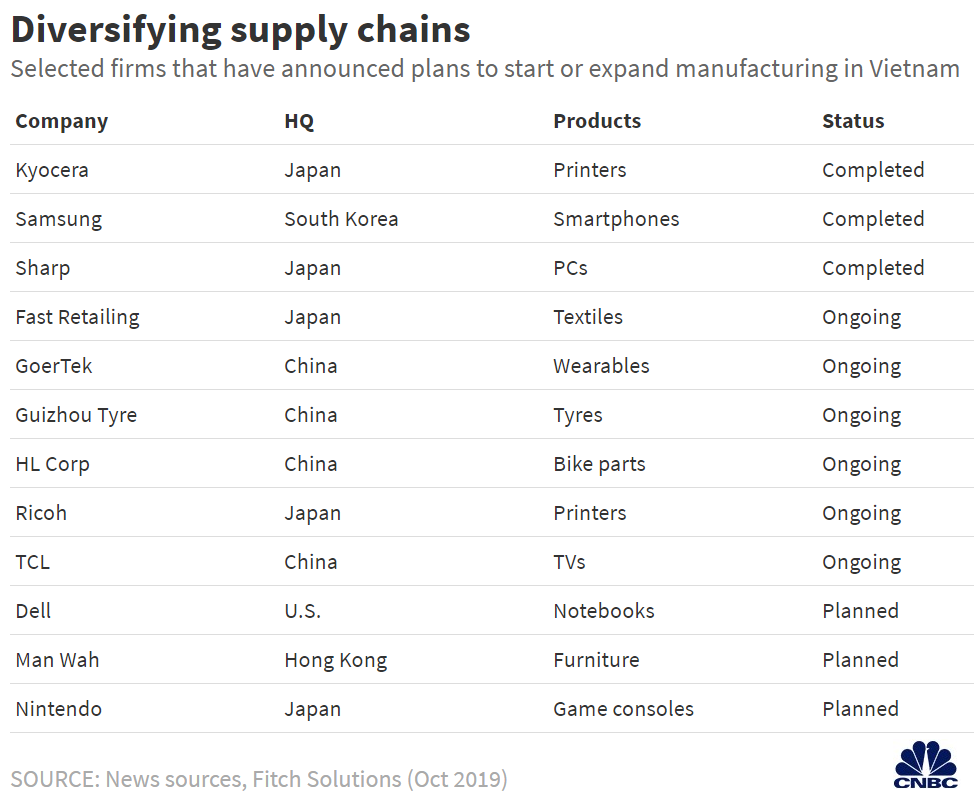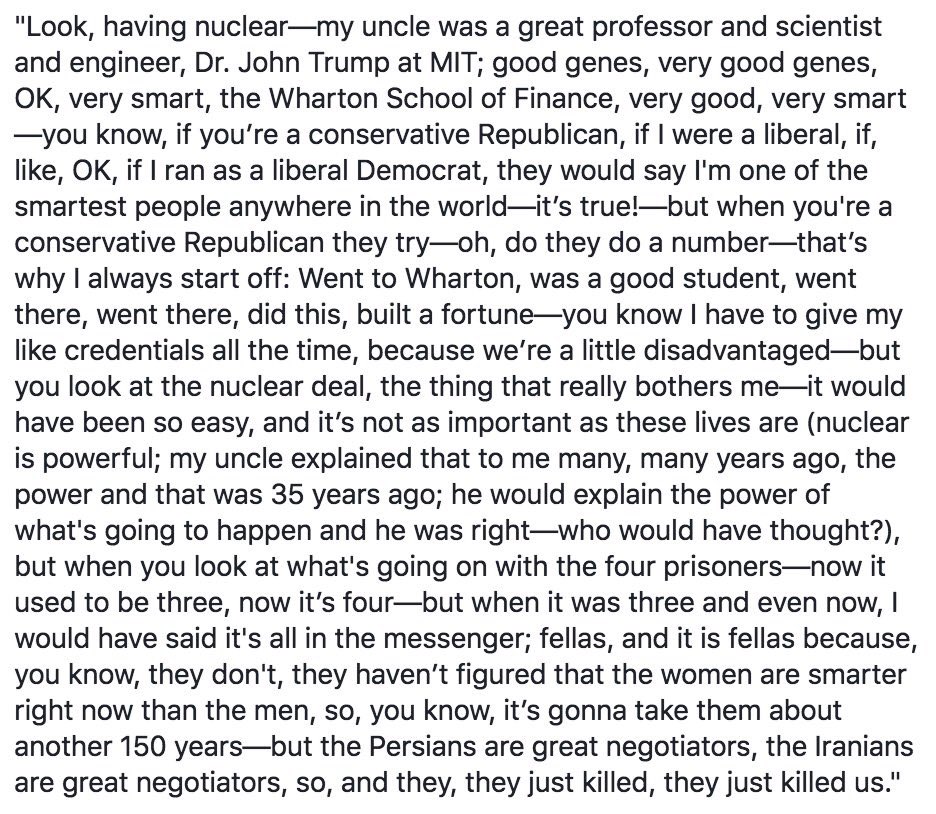sundin13 said:
LurkerJ said:
I have to point out that this "debacle" has been largely positive as it allowed American companies to diversify their supply chains out of China. These tariffs are the reason countries like India are stepping up their manufacturing game, allowing China to monopolize industrial production has been terrible for all countries, not just the USA.
Why would you want to allow one country to withhold all the manufacturing power of our most used devices? That's a recipe for disaster, the whole world was willingly allowing Beijing to become their sole provider of their most used goods because of greed, something had to be done about it.
It's good for the tariffs to continue and for other countries with cheap labor to step up so that the competition for manufacturing is resuscitated, and you can't just simply say "it would've happened anyway" because as far as most politicians are concerned, it was a non-issue to continue to concede to China because they wanted that sweet cheap access to their sweatshops.
Make no mistake, China was hit by the trade war and it's not over, if they want tariffs to be lifted they have to make more concessions in Phase two, and time isn't on their side as other countries will slowly replicate their successful formula, which would be the best case scenario because competition is good.
Not to mention, so far the consumers haven't been negatively affected by these tariffs despite the extreme and the continuous warnings issued by mainstream media outlets. So the longer phase two takes, the more diversified supply chains will become which is better for everyone.
|
Evidence that China was hurt by the trade war is not evidence that the US benefited. While global diversification would be a fairly small positive, it would not in any way make up for the real damage done to the American economy over the last several years (relative to how the economy could have been in the absence of the trade wars). That said, I struggle to find much evidence that there was actually much in the way of a global diversification.
https://www.hindustantimes.com/analysis/why-the-us-china-trade-war-has-not-helped-india-analysis/story-bQ74UotjHLBpHmRsoZc2xJ.html
This piece by the Hindustan Times examines in particular why India hasn't really benefited from the trade war, which largely goes against your assertion. It points out several key facts, including that the US/China trade volume wasn't greatly affected by the trade war. Beyond that, it points out that many countries simply don't have the infrastructure to handle this volume. The trade war is very uncertain. These changes would take years to make and many businesses don't really see the benefit in making a huge long term investment that may not even pay off until after the trade war has ended. A much better option would be to directly diversify by building bridges with diverse manufacturing sectors, not by burning the bridges that are in place.
Further, China wasn't the only country that Trump picked a fight with. Many other areas which may have picked up some of the slack were also targeted by the Trump administration (or threatened, which creates uncertainty and hampers investment). These areas include Canada, Mexico, the EU and...India. Yes, one of the reason that the Trump trade war didn't heavily benefit India is because Trump was also picking a fight with India.
And again, even if this diversification occurred, it would not negate the negative impacts of the trade war. Billions of dollars were spent on a bailout for farmers, with many losing significant portions of their crop due to the inability to sell, prices increased for consumers, American companies had to eat a lot of the costs, business investment has been severely hampered and US manufacturing was in a recession in 2019, with large manufactures blaming the trade war and these issues will continue to be a problem as long as these tariffs remain in place.
The strategy seems like it was far too scattershot. Positive effects were nullified by what seemed like a complete absence of any strategy or cooperation between countries...
|
Thanks for the link above, quiet insightful. While I was wrong on bringing up India as an example, it was speculated to be the biggest beneficiary years ago though, but as the article clearly explains, it didn't happen. I did stress on the fact diversification is a slow process and it won't happen overnight. Asian countries are caught up in a "if only we did more for our infrastructure and we didn't suck" of situation it seems. Looking up countries that have benefited from the trade it looks like Vietnam has done better than the rest of Asia:
'Investment flows The trade war has also led companies to start or expand manufacturing in Vietnam — accelerating a trend that began years ago when rising costs in China pushed manufacturers to seek cheaper locations.

https://www.cnbc.com/2019/10/29/trade-war-can-vietnam-replace-china-as-a-global-manufacturing-hub.html
If this trend continues we may eventually end up with the NECESSARY diversification, I just can't see us living in a sustainable world if China becomes the only pair of breasts we can suckle at. You mention that "A much better option would be to directly diversify by building bridges with diverse manufacturing sectors, not by burning the bridges that are in place", could you elaborate more? I don't quite get your point here.
Moving on from diversification. There seems to be other positive aspects to PHASE ONE of the deal. China abusing US companies by forcing them over their technology to gain access to the Chinese market is a thing of the past, which is great, or at least I think it's great reading this NYT piece:
The trade deal that President Trump will sign on Wednesday includes commitments by China to curtail practices that American firms complain put them at a disadvantage and force them to hand over valuable intellectual property to Chinese firms, according to several people with knowledge of the deal.
As part of the agreement, China has promised to punish Chinese firms that infringe on or steal corporate trade secrets, satisfying a concern of American businesses. China will also refrain from directing Chinese companies to obtain delicate foreign technologies through acquisitions, including halting purchases by state-owned enterprises that “harm” American interests. American officials say Beijing has used the practice to leap to the forefront of advanced industries, like semiconductors.
Another primary concern of American companies — a requirement that they turn over technology as a condition of doing business in the country — is also addressed in the deal. China has agreed not to force companies to transfer technology, which it has done by requiring joint ventures with Chinese firms and forcing companies to license their intellectual property at low prices.
To prevent China from violating the agreement, the administration will continue to have tariffs on $360 billion worth of goods, along with the threat of future tariffs if China reneges on its promises.
The agreement was “more positive” than expected, Myron Brilliant, the executive vice president of the U.S. Chamber of Commerce, said at a news conference in Beijing on Monday. He added that striking an agreement had calmed tensions in a long-running trade war.
“We are pleased from what we’ve heard,” Mr. Brilliant said.
Administration officials say the tariff threat gives the deal more teeth than previous pacts with China. But it also raises the possibility that both countries could wind up back in the same type of tit-for-tat trade war that has inflicted economic damage across the globe.
Clete Willems, a partner at Akin Gump who helped to advise on trade policy until he left the administration last year, said the deal would fulfill three of the four major conditions laid out in the administration’s initial report that justified tariffs on Chinese goods. That included a requirement that China not direct its companies to acquire sensitive foreign technology.
Mr. Willems said the deal also contained new language protecting trade secrets, including a promise to set up judicial proceedings and criminal penalties for Chinese entities that steal confidential business information. It would also provide greater patent protection for the pharmaceutical sector.
The one major concern outlined in the administration’s report that was not addressed in the trade deal is cybertheft, Mr. Willems said. China had rebuffed American demands to include promises to refrain from hacking American firms in the text, insisting it was not a trade issue.
“We didn’t fix every single problem with China in this agreement, there is no question about that,” Mr. Willems said. “But what was done is really significant.”
Some analysts have expressed skepticism that a broad threat of tariffs on the overall Chinese economy would really deter Chinese companies bent on gaining a technological edge by stealing trade secrets.
The Trump administration itself has cited China’s failure to live up to its agreements. In March 2018, the Office of the United States Trade Representative detailed a pattern of failed promises by the Chinese government to no longer force foreign companies to transfer technology to Chinese firms. China had failed to live up to that commitment “on at least eight occasions since 2010,” the trade office said.
The first-phase agreement does not address some of the administration’s bigger concerns about China’s economic practices, including its use of subsidies and state plans to build domestic industries that flood the global market with low-priced products, often driving American competitors out of business. Critics say the practice has undermined American industries like steel and solar panels, and could prove detrimental to high-tech manufacturers of electric vehicles, computer chips and robots.
The Trump administration, which had hoped to curtail state subsidies as part of a trade deal, tried to head off criticism on Tuesday morning by announcing progress on a multilateral effort to address these practices.
Mr. Lighthizer met with ministers from Japan and the European Union in Washington, and resolved to press for changes at the World Trade Organization that would ban many of the subsidies that China provides to its industries.
He said the three would work together to restrict a variety of unfair subsidies and funds provided through state-owned enterprises, which the W.T.O. had previously ruled were not subject to its subsidy rules. Both are practices China has relied on.
https://www.nytimes.com/2020/01/14/business/economy/trump-china-trade-deal.html
Did we get China to do everything the western world wants it to do? No. But again, this is phase one, the second phase is, as the article above mention, will involve more countries (underlined).
It's just hard for me to completely brush off the gains just because Trump is involved. The EU has yet to stop China from forcing European Tech companies from handing their Tech, and it's hoping to stop China from doing that by engaging in similar negotiations just like the USA did. In other words, the USA is ahead of the EU on that front, and many others, because the USA had a tougher attitude towards Beijing. Now the EU will start asking China for similar privileges. Let's see how long that would take them.
Finally, this will be worth revisiting years from now once we have some actual results. It just might the worst deal ever, even though it doesn't look like it.



















































